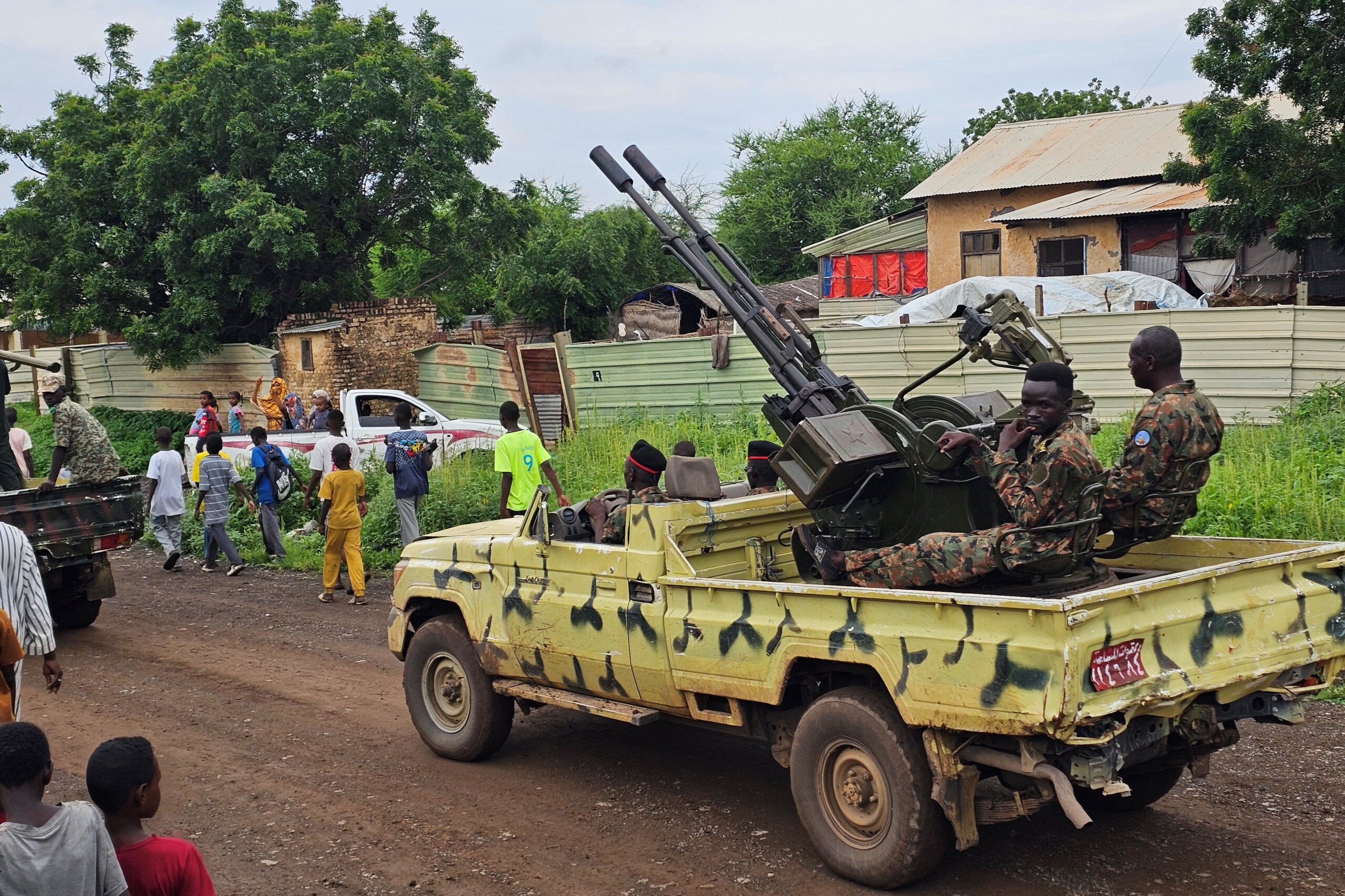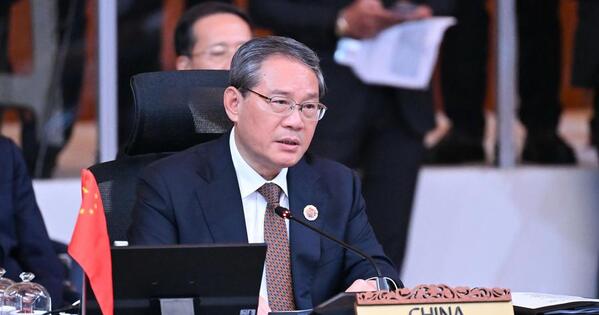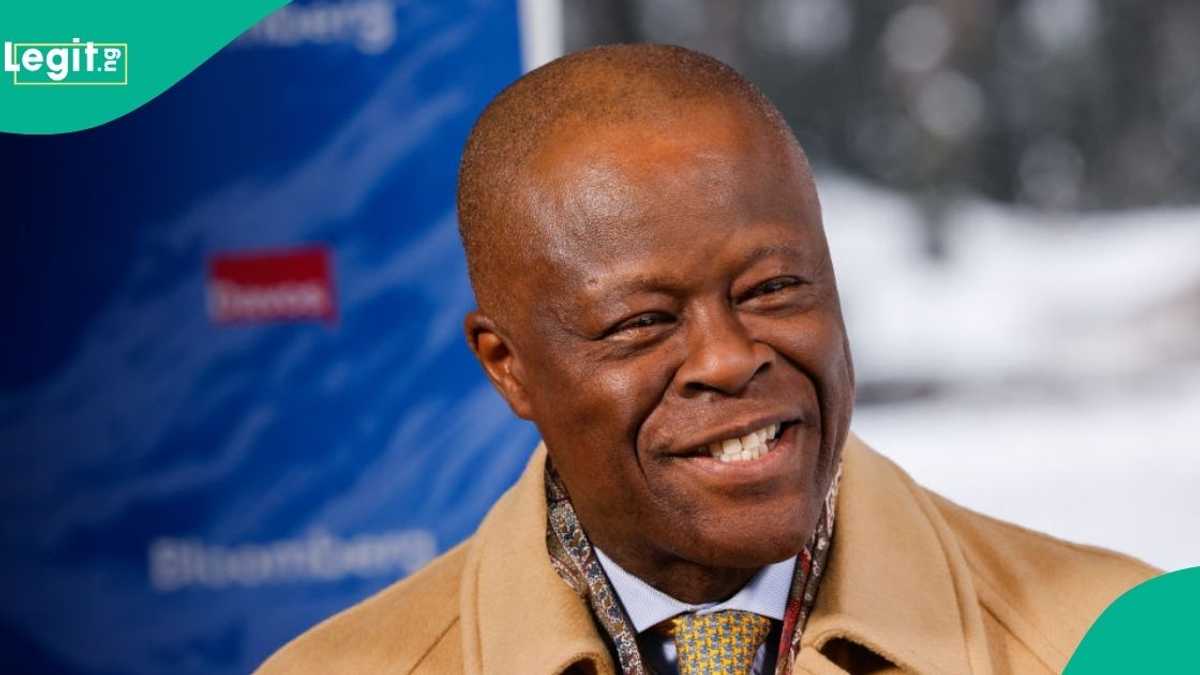Copyright The American Conservative

Loading the Elevenlabs Text to Speech AudioNative Player... El Fasher has fallen. On Monday, the Rapid Support Forces (RSF) rebels drove the Sudanese army and allied militias out of the city, which had been under siege since April 2024, cementing RSF control over Darfur. The victorious rebels filmed themselves gleefully committing atrocities against the local population, including the executions of 460 hospital patients. Fighters shot at fleeing civilians while shouting “kill the Nubians,” both a name of a Sudanese ethnic group and a general slur for non-Arab minorities. The bloodstained streets are visible from space. The war crimes will likely not be limited to killing. The RSF has a reputation for sexual sadism against conquered populations, including a raping a woman after tearing her from her breastfeeding baby and beating to death an 11-year-old boy who tried to save his mother from sexual assault. Along with rape comes rapine. The RSF sustains itself by preying on Sudan’s resources, from gum arabic to gold, through extortion and outright looting. Most of Sudan’s gold has ended up in the United Arab Emirates, the main military and diplomatic backer of the RSF. And Emirati investments in Sudanese militias have paid off in more than one way. The RSF and its predecessor, the Janjaweed, have also served as a manpower reserve for Emirati proxy wars in other countries. The Emirati government paid the Janjaweed to send fighters, including child soldiers, into its doomed war in Yemen. RSF troops later turned up fighting for Khalifa Haftar, an Emirati-backed warlord in Libya. As El Fasher was under siege, Syria was busy dealing with the fallout of a rival foreign intervention in Libya. This week, the new Syrian government announced the opening of consular services for Syrians marooned in Libya, along with efforts to recover POW/MIAs, brought there by Turkish intervention. During Syria’s own civil war, Turkey had cultivated the Syrian National Army, a militia that one U.S. official characterized as “thugs, bandits, and pirates.” They acquired a reputation for extortion, torture, and kidnapping women in Syria, particularly Kurdish areas. When Turkey intervened in the Libyan civil war against Haftar, it brought along these mercenaries, some of whom later made their way to Europe. The Axis of Resistance, the Iranian-backed bloc in the Middle East, fell apart almost a year ago. The victors have been a loose coalition of Israel, Turkey, and the oil-rich Arab monarchies, all of whom enjoy American backing. And the wars in Sudan and Libya demonstrate what kind of regional order is in the cards. Rather than embracing the vision of peaceful trade and non-interference that U.S. President Donald Trump laid out in Saudi Arabia earlier this year, the victors have been using proxy warfare to grab as much as they can from the burning wreckage of the Middle East and North Africa. The Axis of Resistance has been replaced with an Axis of Rape and Pillage. The old Iranian axis was a network of would-be revolutionaries. Primarily drawn from Shi’a Muslims, Palestinians, and a few Levantine minority communities, these forces cannibalized their host nations in the name of a regional uprising against U.S. imperialism. Many of them descended into pure self-enrichment and petty sectarian feuds, which ultimately exposed the Axis to penetration and destruction. The new Axis of Rape and Pillage is a more efficient upgrade of that model. The same combination of local hatred and international greed drives it, without a pretense of a positive vision or popular legitimacy. Corruption is not a bug; it is a feature. There is no Revolution left to betray. After the U.S. attack on Iran in June 2025, journalist Arash Azizi and Bashar Halabi beamed about “the Middle East’s end of ideology” in Foreign Policy. Thanks to the destruction of the Axis of Resistance, they wrote, the region was seeing “the decline of transnational militias and revolutionary ideologies as central to Middle Eastern politics,” to be replaced by sovereign state-driven development. If only. The “post-ideological” order means less national sovereignty and less accountable power.. The essayist Ali Terrenoire explains much better both the cause and effect of post-ideological politics: “While the lumbering masses try to organize; smaller hierarchies comprised of the incumbent rich and powerful can move quickly to establish their dominance and re-wire the political domain to their advantage, permanently.” The opposite of resistance is submission; the opposite of ideology is nihilism. Azizi and Halabi cite post-revolutionary Syria as an example of state development in the new order. And while there is indeed much to be optimistic about, the new Syria is threatened by sectarian violence, egged on by sparring U.S. partners. Turkish-backed warlords, only partially integrated into the new government, have committed atrocities against non-Sunni minorities. In response to a July 2025 massacre against the Druze minority, Israel began backing Druze separatism through arms shipments and air raids. Two pillars of the post-ideological order are working out their spheres of influence at the expense of Syrian sovereignty and Syrian blood. The same pattern has played out across the region for years, especially in places like Libya and Sudan, where Iran had negligible or no influence to begin with. Turkey went into Libya to fight against an Egyptian- and Emirati-backed warlord; the Emirati-backed RSF is fighting against an Egyptian- and Ukrainian-backed military government in Sudan. While the incumbent Middle Eastern powers have been willing to kill tens of thousands of foreigners to adjust their share of the pie, they fundamentally agree that they (and no one else) should be sitting at the same table. No matter how the pie gets divided, the U.S. becomes more entrenched in its role as maître d’hôtel. The Abraham Accords of 2020, sold as a peace agreement, were key in setting this table. For all the interfaith kumbaya messaging, the real basis of the accords is defense cooperation. Even that euphemism does not quite capture what Israel and its Arab partners have to offer each other. Both are interested in ruling over unwilling subject populations. Israel has the technology to spy on people at scale and insulate the powerful from resistance. Arab petrostates have the money and networks to project subversive soft power at a distance. Real estate men like Jared Kushner have gotten much of the credit for brokering the new regional order. Yet the wheels of Arab-Israeli cooperation leading up to 2020 were greased by shadier characters, such as arms dealers. A leaked email from the Handala files shows that Israel’s former Prime Minister Ehud Barak turned to none other than sex trafficker Jeffrey Epstein to make “contact” with “the right hand of [M]aktoum,” the ruling family of Dubai, in 2013. (Neither Barak nor the figure described as Maktoum’s right hand responded to email requests for comment.) The pinnacle of the post–Abraham Accords order is the “New Gaza” plan. Israel and unnamed Arab countries have been working together to establish several Palestinian militias to rule the ruins of Gaza, building on preexisting clans and organized crime networks. To the disappointment of regional powers, Hamas quickly routed those militias in October 2025 and instituted a brutal crackdown against opposition. Although Trump had initially praised the crackdown against “very bad gangs” in Gaza, he soon made it clear that the U.S. considers Hamas consolidation to be a violation of the ceasefire. “Very bad gangs” indeed. The Israeli- and Arab-backed militiamen include confessed aid looters and former Islamist State fighters. Hawkish Israeli opposition politician Avigdor Lieberman called them “the equivalent of ISIS in Gaza.” But these militants are not dangerous because they are secretly true-believing jihadists. They are dangerous because they do not believe in anything. Like the warlords who cycled through every single faction of the Syrian civil war, they are willing to fight for anyone who can offer protection and opportunities to exert power. Those are the footsoldiers of the anti-ideological world.



